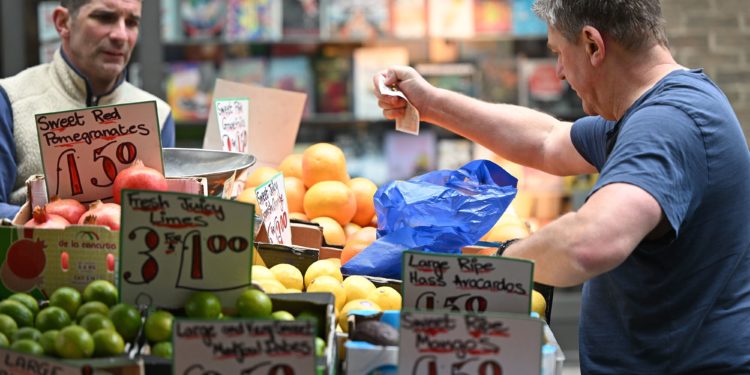UK’s inflation soared to a 40-year high of 9% in April as food and energy prices spiralled, official figures revealed Wednesday, escalating the country’s cost-of-living crisis.
Consumer prices rose by 2.5% month-on-month, fractionally below expectations for a 2.6% climb in a Reuters poll of economists, which had also projected a 9.1% annual increase.
The 9% rise in the consumer price index is the highest since records began in their current form in 1989, outstripping the 8.4% annual rise posted in March 1992 and well ahead of the 7% seen in March of this year. The UK.’s Office for National Statistics also said its estimates suggest that inflation would have last been higher “sometime around 1982.”
Rishi Sunak, the Chancellor of the Exchequer has indicated he may offer further measures to boost the incomes of those on the lowest pay, although it is understood the cabinet is split over how to fund the billions of pounds that campaigners say are needed in extra subsidies or welfare payments, with some favouring a windfall tax on oil and gas companies.
Businesses in industries affected by an acute shortage of workers have complained that higher wages have also become an important factor in pushing up prices.
Labour market figures released on Tuesday on UK’s inflation showed that average total wages increased by 7% in March, pushed up by bonus payments to staff and consultants working in the finance, IT, construction and professional services sectors.
However, income growth has not been evenly distributed. The average pay rise without bonuses was only 4.2%, hitting millions of workers with a fifth consecutive month of falling real wages.
A steep fall in the value of the pound on foreign exchange markets has also increased the cost of imports.
Read also; UK’s Inflation Hits 30-year High of 7%.




